On October 16, at the conference on updating endoscopic treatment of early-stage digestive cancer and pancreaticobiliary diseases organized by Nguyen Trai Hospital (HCMC), specialist doctor Nguyen Duc Thong, Head of the Endoscopy Department of this hospital, said that the number of cases of early detection of stomach cancer in Vietnam is currently low.
He cited a retrospective report from 2014 - 2019 showing that, of 1,606 cases of stomach cancer in Ho Chi Minh City, only 4% of cases were detected at an early stage. Another study in Hue from 2013 - 2018 showed that this rate was 7.6%. Meanwhile, in Korea, the early detection rate of stomach cancer is more than 63%, in Japan it is over 70%.
"There are many reasons for this problem, of which the screening program is an important factor, but in Vietnam there is no national screening program. Patients are mainly screened opportunistically, that is, when they come to the clinic for other diseases or symptoms," said Dr. Thong.
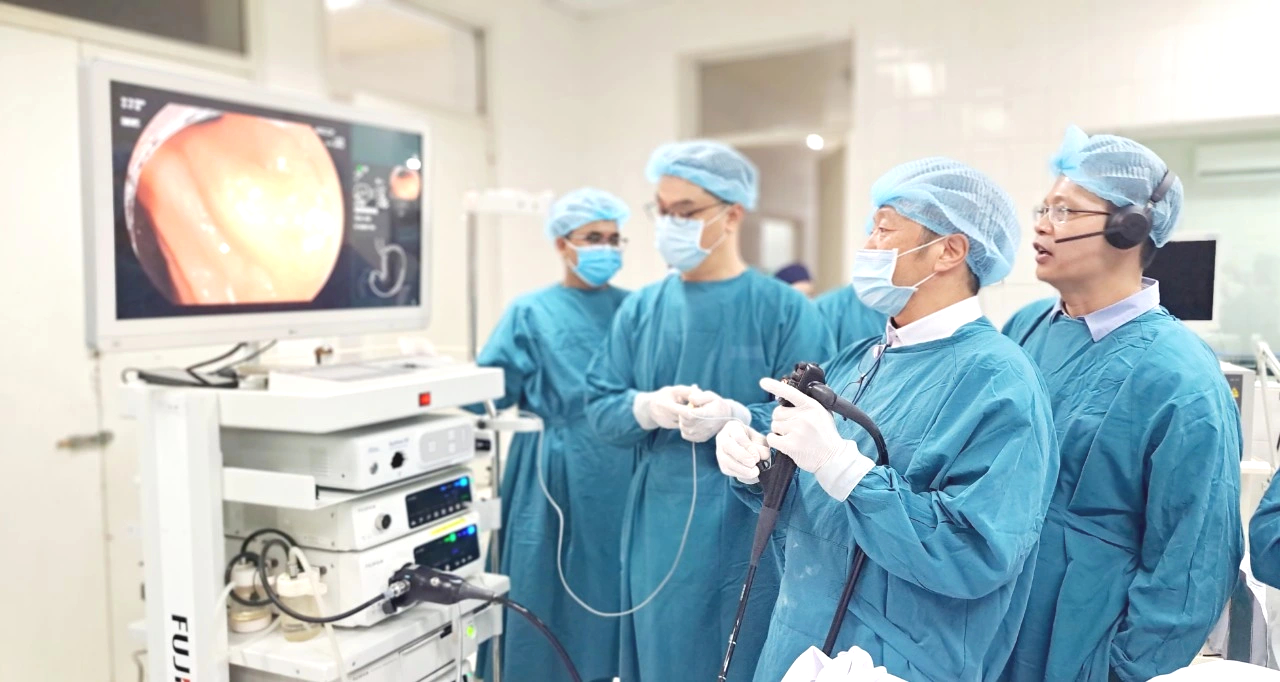
Dr. Kinoshita Koshi, Head of the Department of Gastroenterology and Endoscopy, Kyoto Miniren Central Hospital (Japan) is performing direct interventional endoscopy at Nguyen Trai Hospital.
Meanwhile, Japan has had a screening program since 1960 (initially with contrast-enhanced gastric X-ray, then with gastric endoscopy) for patients over 40 years old, performed once a year. Recently, the rate of gastric cancer in Japan has decreased, so the screening program has been adjusted for people over 50 years old, and performed every 2-3 years.
Dr. Kinoshita Koshi, Head of the Department of Gastroenterology and Endoscopy, Kyoto Miniren Central Hospital (Japan) added at the conference that stomach cancer is currently decreasing in Japan because the rate of people infected with HP (Helicobacter Pylori) bacteria is decreasing. And in recent years, the detection and treatment of this cancer in Japan has made significant progress.
To be like other countries, Dr. Thong said, there needs to be an endoscopic screening program for gastric cancer in high-risk groups such as patients infected with HP who have been treated but later develop severe atrophic gastritis or severe intestinal metaplasia. To do so, there needs to be coordination between endoscopists, examining physicians, as well as clinical doctors to closely monitor patients.
For endoscopists, note the responsibilities and obligations when holding the endoscope for the patient, the endoscopy technique must ensure to avoid missing lesions, and ensure the endoscopy time.
Human resources and formal training courses in endoscopic techniques (such as ESD) are needed because this is a growing trend, along with investment in modern medical equipment.
The media makes people see the benefits of early cancer screening.
At the conference, in addition to theoretical guidance on endoscopy, diagnosis and detection of gastrointestinal cancer, Dr. Kinoshita Koshi also performed direct intervention endoscopy to diagnose and treat early-stage gastrointestinal cancer at Nguyen Trai Hospital.
From 2010 to present, the Endoscopy Department of Nguyen Trai Hospital has performed most of the gastrointestinal endoscopic procedures such as stomach, colon, endoscopic polyp resection, hemostasis, gastrostomy, and foreign body removal.
Of which, diagnostic endoscopy of the stomach is from 10,000 - 20,000 cases/year and colon is from 4,000 - 4,500 cases/year. Treatment endoscopy is about 1,200 cases/year. Regarding endoscopy of gastrointestinal bleeding, in the past 3 years, the hospital has performed nearly 560 cases, including the cause of cancer...
In 2023 and 2024 the hospital will begin implementing ESD techniques.
Source: https://thanhnien.vn/can-lam-gi-de-giam-ty-le-nguoi-mac-ung-thu-da-day-185241016155325822.htm



![[Photo] Overcoming all difficulties, speeding up construction progress of Hoa Binh Hydropower Plant Expansion Project](https://vstatic.vietnam.vn/vietnam/resource/IMAGE/2025/4/12/bff04b551e98484c84d74c8faa3526e0)


![[Photo] Closing of the 11th Conference of the 13th Central Committee of the Communist Party of Vietnam](https://vstatic.vietnam.vn/vietnam/resource/IMAGE/2025/4/12/114b57fe6e9b4814a5ddfacf6dfe5b7f)




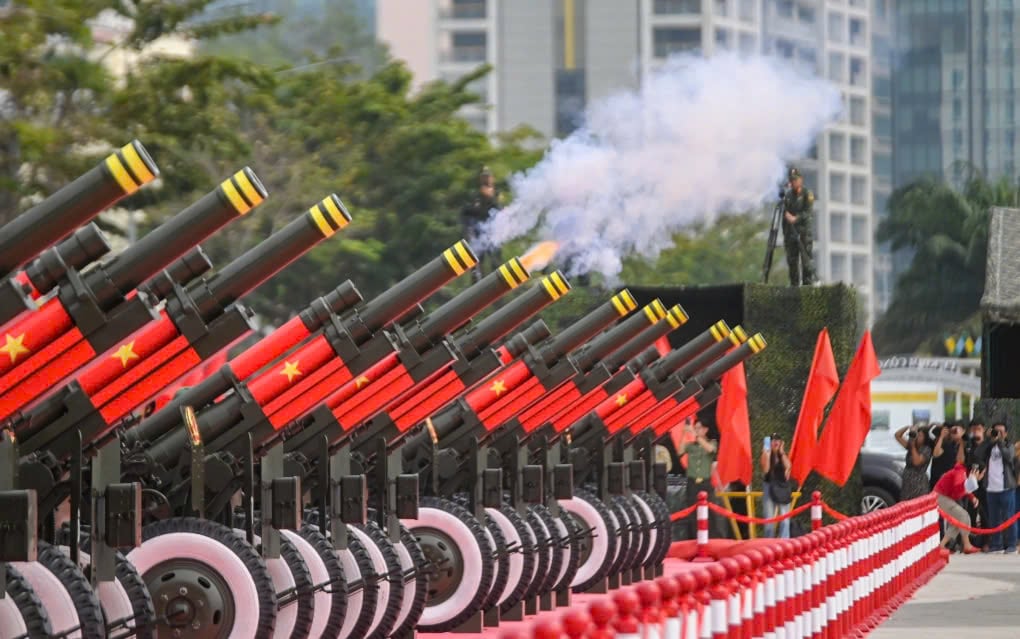

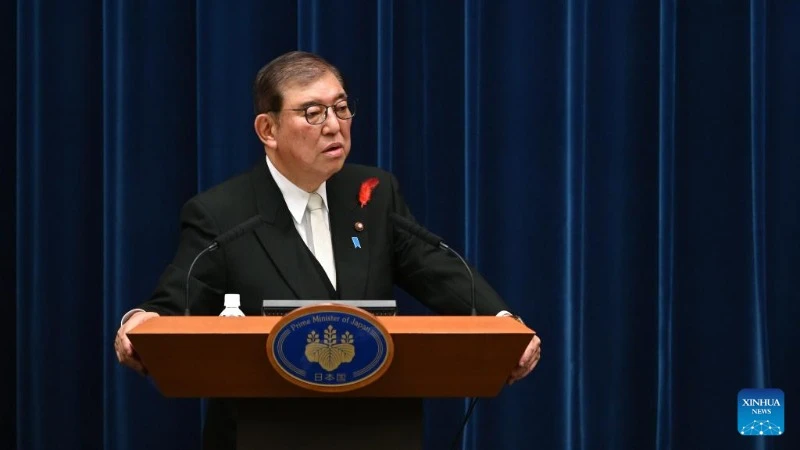





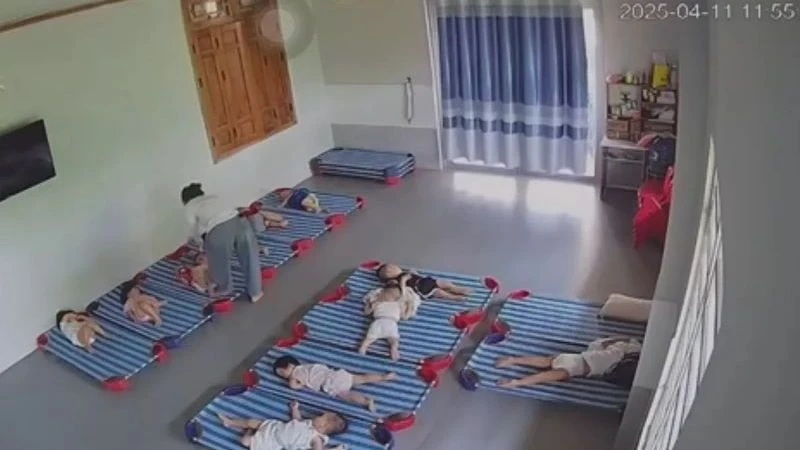
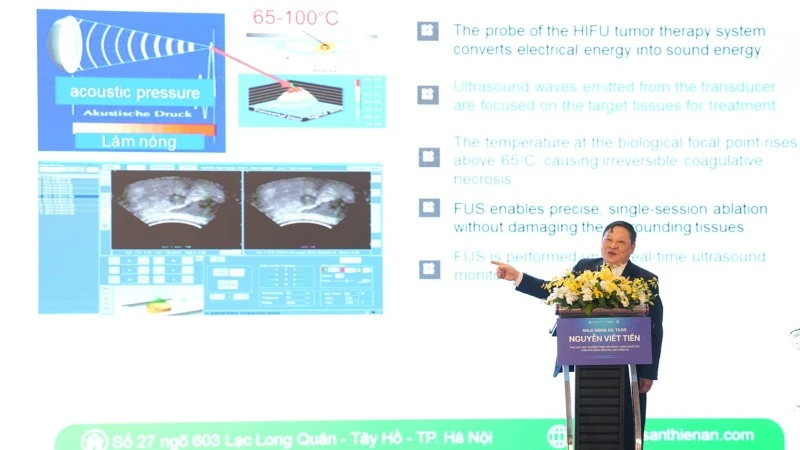
![[Video] First time in Vietnam: Successful implantation of 3rd generation partial artificial heart](https://vstatic.vietnam.vn/vietnam/resource/IMAGE/2025/4/12/8817412224094c68ba2c744b7bd5cfea)










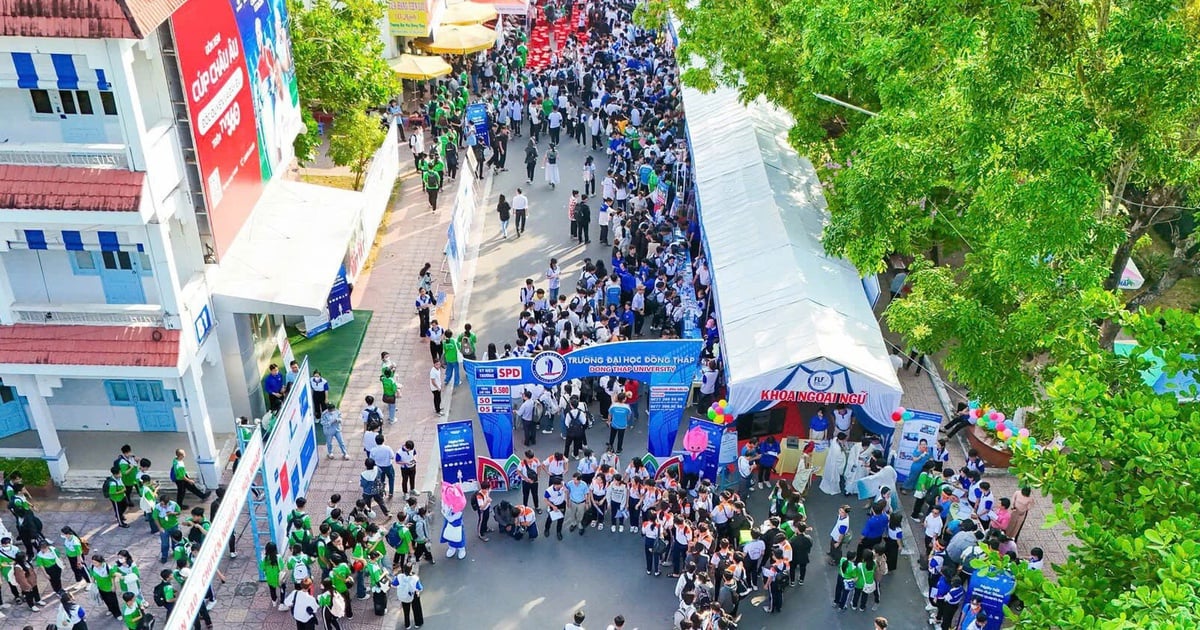





























































Comment (0)